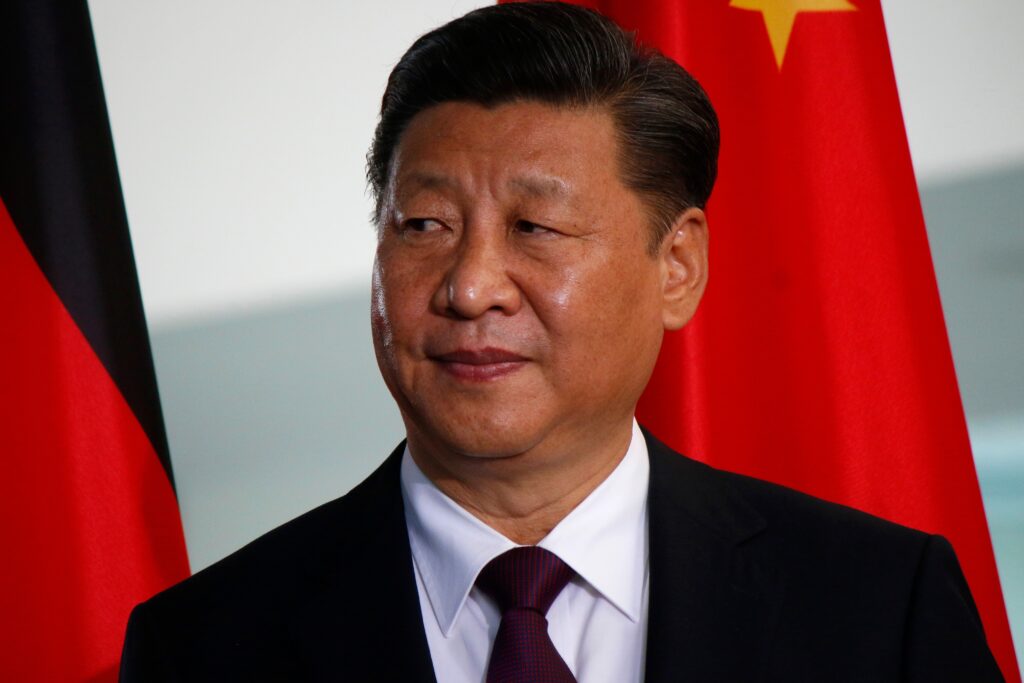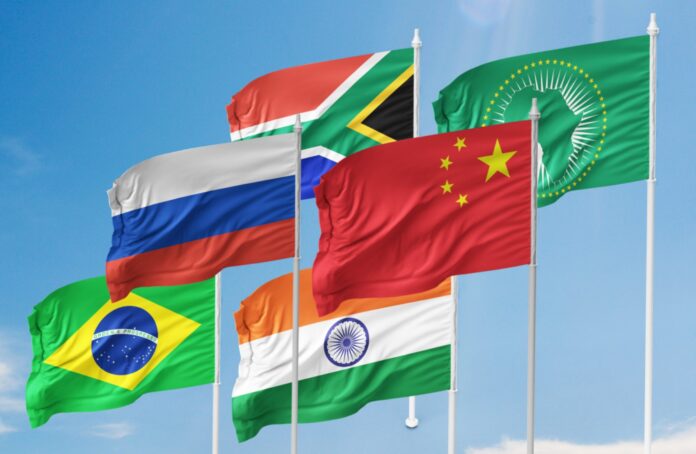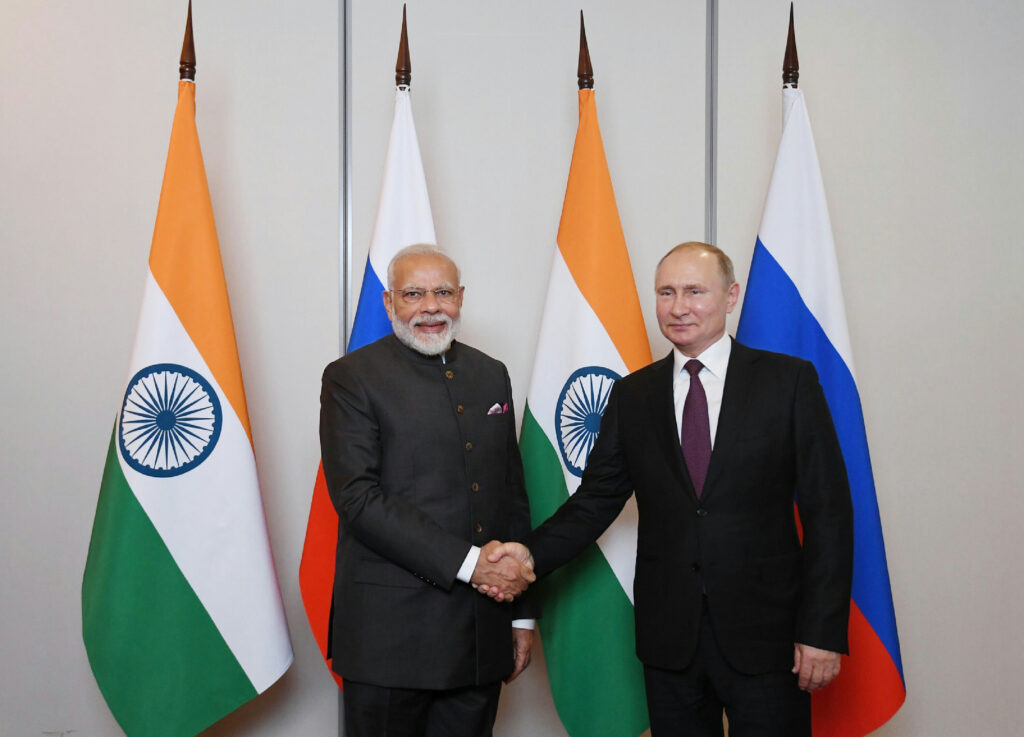Blogger Najm Al-Deen says Muslim nations should not place too much hope in the emerging BRICS alliance of nations which is being promoted as an alternative to the U.S.-led unipolar world but in reality is just a re-ordering of it.
One of the defining features of the post-WWII era has been America’s unparalleled accumulation of financial and military power. The transfer of East Germany to the Western alliance in 1989 marked a “unipolar moment,” allowing Washington to dictate the terms of a globalised economy and pursue strategic foreign policy objectives in the absence of geopolitical rivals.
However, American exceptionalism is now confronted with a multipolar world that reflects a greater regionalisation and equitable distribution of global power. The foremost contender to unipolarity is the BRICS alliance.
BRICS is the acronym denoting the emerging national economies of Brazil, Russia, India, China and South Africa, which many predict will rank among the most influential economies in the coming decade. Their alliance has recently been joined by Saudi Arabia, Egypt, Ethiopia, Iran and the United Arab Emirates.
Foreign Direct Investment inflows to the bloc quadrupled from 2001 to 2021, and having overtaken the G7 in GDP based on Purchasing Power Parities the alliance will exert a greater global influence with energy-exporting giant Saudi Arabia announcing its membership.
And with the BRICS New Development Bank offering alternative loan mechanisms to the IMF and talks of de-dollarisation, this new financial architecture could bring nations of the Global North and South to parity.
Having borne the brunt of America’s hawkish foreign policy and economic strangulation for decades, many Muslim countries are optimistic about BRICS inclusion. However, a closer inspection reveals it is not the paradigmatic shift many are claiming, as its signatories continue to be entangled with private financial interests.
Subscribe to our newsletter and stay updated on the latest news and updates from around the Muslim world!
Brazil
For almost two centuries, Brazil’s economic development was overseen by the Rothschild family which secured the country’s independence from Portugal.
Its railway networks, telecommunications and critical infrastructure were developed through foreign investment, much of which came from the N.M. Rothschild & Sons (NMR) banking house which serviced Brazil’s debts. The NMR went from being Brazil’s bullion dealing traders to its fiscal agents, influencing its exchange rate policy.
After issuing several millions in Brazilian public sector bonds and private sector securities, it acquired substantial financial leverage over Brazil, effectively mortgaging the country’s future.
Today, Brazil’s competitiveness still depends on its integration into economic value chains determined by unelected and unaccountable transnational corporations like the WEF (World Economic Forum).
Its high concentration of urban poverty makes it an ideal market for Big Data economists who use smart technologies like Digital IDs-a key node in the 21st Century surveillance capitalism apparatus-to data-mine vulnerable populations in the favelas, for targeted advertising and investment opportunities.
Russia
While many believe Russia is impervious to the financial structures dominating the West, the intimate relationship between Europe’s financial elites and Russia’s aristocratic orders is well documented.
Historians Gerry Docherty and Jim Macgregor state that throughout the 19th and early 20th centuries, the Anglo-American establishment extracted concessions over Russian energy while French investment bankers accrued vast capital from oil refineries in Odessa and Novorossiysk.
In fact, much of Russian oil-output was controlled by the French Caspian and Black Sea Petroleum Company and London-Paris families issued bonds to obtain leverage over Russian finances.
Although Putin’s current invasion of Ukraine heralds a new chapter in Moscow’s quest to restore imperial glory, Russia is not decoupling from the corporatocracy. The country remains central to the WEF’s Fourth Industrial Revolution and has started testing digital ruble which will be issued for broad use cases if pilot projects are successful.
Therefore, like its Anglo-American rivals, Russia is on board with programmable CBDCs (Central Bank Digital Currencies) which offer central banks unprecedented control over financial transactions and scope for regulating expenditures through conditional cash transfers which bodes ominously for one’s economic freedom.
India
As a member of the British Empire until 1947, India was a goldmine for private financiers. The “Jewel in the Crown” supplied British factories with raw materials which fuelled the Industrial Revolution while its large population offered business magnates a market to sell manufactured goods.
After establishing trading stations along India’s coasts, the East India Company garrisoned a large standing army which allowed British merchants to increase their foothold in subcontinental politics. By the early 19th century, the trading behemoth controlled two thirds of the Indian landmass and went on to plunder vast tracts of South Asia.
Today, India remains a crucial asset in the portfolios of hedge funds which have earmarked the country as an “impact investment” hub. This describes investments which prioritise environmental, social, and governance (ESG) outcomes alongside a financial return, predicted to be a trillion dollar asset class by the end of this decade.
Modi is opening India’s economy to predatory stakeholder capitalists who can seize on the disorientation of India’s huge impoverished underclass to trial radical economic reforms, geared towards the rapid liberalisation and privatisation of industries. With ESG the new cash cow for economic shock therapists, India is ushering a dark era of “disaster capitalism.”
China
Despite proclaiming independence for a millenia, the Opium Wars marked the oligarchic powers’ unfettered access to Chinese markets, expanding the size of Britain’s Hong Kong territory and granting British and American merchants trading rights in the ports of Canton and Shanghai.
The Anglo-Chinese Treaty of Nanjing and the Treaty of Wangxia gave foreigners on Chinese soil privileged status, inaugurating a century of Anglo-American economic and cultural imperialism over Hong Kong and southern China.
Today, China poses a formidable threat to transatlanticism through its Belt and Road Initiative, which can potentially boost global GDP by trillions of dollars by 2040. Furthermore, its aggressive posture over Taiwan undermines the U.S.-led security architecture which formed the backbone of the postwar system.

But this doesn’t change the fact that China is the poster child of a technocratic and authoritarian model of governance which offers new sources of revenue for surveillance capitalists.
The country has been laying the infrastructure for smart cities which utilise the rapid expansion of Internet of Things and Internet of Bodies innovations to improve urban infrastructure and energy efficiency.
However, the surveillance implications of digitally-connected civic centres with ubiquitous monitors and sensors raises serious concerns about the Orwellian mission creep of governments.
Its main beneficiary is Big Tech which can develop systems to scan copious volumes of data to accurately predict the behaviour of entire populations. This is a boon for any private corporation contracted to collect data on citizen movement and behaviour, which governments can use to conduct threat assessments for non-compliance with state decrees.
In fact, more than any nation, China has conditioned its populace for a social credit system which rewards and punishes citizens based on their levels of compliance with approved behaviours.
Having already partnered with Alipay and WeChat to enable the use of the digital yuan and with Chinese Premier Li Qiang reiterating China’s commitment to upholding the international order, it is no surprise to see China constantly praised as a driving force of the global economy by leading WEF spokespersons.
South Africa
Another lucrative asset in the colonial portfolio, South Africa rarely escaped the adventurism of banking conglomerates. Throughout the 19th and 20th centuries, the De Beers Syndicate and Gold Fields of South Africa financed the resource extraction of mining magnates and empire builders like Cecil Rhodes, granting Britain a ruthless monopoly over the mineral-rich regions of southern Africa, leading to generations of culture erasure, forced labour and land dispossession.
Like other BRICS members, South Africa is also marching lockstep to align its economy with the vision of stakeholder capitalists. After becoming President, Cyril Ramaphosa placed the WEF’s Fourth Industrial Revolution at the heart of the nation’s economic roadmap and has already launched smart-city development projects.
In addition to committing to net zero emissions largely at the behest of a cross-section of power brokers and unaccountable bureaucrats who sense the massive financial potential in green markets tied to the UN Sustainable Development Goals, the country has pledged to unleash its potential through impact investment which will fuel the nation’s dependency on venture capitalists and asset holding conglomerates.
More of the same
After decades of colonisation at the hands of the Anglo-American empire, I understand why the Global South are hedging their bets on a multipolar world in which the transatlantic alliance is no longer in the ascendancy.
However, today’s eastward shift in the balance of power is being facilitated by rapacious investment giants seeking long term capital growth in Asian markets and who operate outside of the Westphalian nation state system.
With tremendous influence over international capital flows, they are dictating the geopolitical and economic transition currently underway. If these private sector oligarchs have any loyalty, it would not be to any nation as such but to their collective aspirations for full spectrum dominance.
Until now, America served as a useful instrument in the projection of globalist power. However, today the candidates include a multinational consortium of UN administered public-private partnerships such as BRICS.
Therefore, the Muslim world must realise that BRICS is simply a disguised continuation of the empire with new sources of value extraction. Far from dismantling the neo-imperial system, it represents a careful reshuffling and re-organisation of the unipolar order, without any real divergence from long-established power dynamics.
























